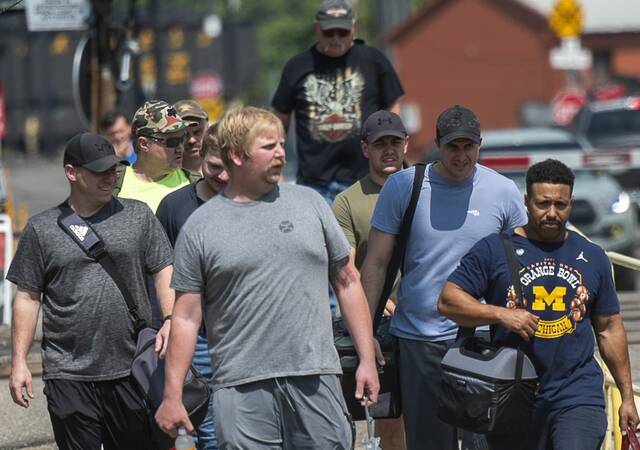https://triblive.com/opinion/matt-shorraw-protecting-our-workers-and-communities-after-u-s-steel-clairton-explosion/
Matt Shorraw: Protecting our workers and communities after U.S. Steel Clairton explosion

When an explosion at U.S. Steel’s Clairton Coke Works tore through the quiet summer day last week, it affected every single town along the Monongahela River. For those of us who grew up here, a plant explosion isn’t just news — it’s something we feel in our bones.
This was more than an accident. This was another reminder of how dangerous it is to work in — or live next to — industries that cut corners, downplay risk and leave workers and neighbors to deal with the fallout. I’ve toured coke works before. I’ve seen the pride in the workers’ eyes and the grit and strength of their hands. They know their jobs are tough and dangerous, but “dangerous” shouldn’t mean gambling with your life every time you clock in.
Coke ovens and the batteries that power them are some of the most hazardous industrial systems on Earth. They operate at extreme heat, use volatile gases and can explode with deadly force if something goes wrong. The men and women who work around them face constant exposure to intense heat, toxic fumes and the ever-present risk of catastrophic failure.
These are good, skilled, hardworking people. They deserve more than lip service and “thoughts and prayers” when something goes wrong. Were they fully trained for the risks? Were they working double shifts because the company didn’t want to hire enough people? Are they being offered real trauma counseling right now — not just a hotline number taped to the break room wall?
Too often, the industry and government treat workers like parts in the machine: replaceable if they break. That is unacceptable. Every single worker in Clairton has a family, friends and a life outside those gates. They deserve to come home safe.
If you live in the Mon Valley, you know there’s no “safe distance” from an incident like this. Our air is connected. Our people are connected. After a blast, the first question in every home is, “Is everyone we know OK?” followed closely by “Is the air safe to breathe?” And far too often, the answers are slow to come.
Neighbors need real-time air quality monitoring and honest communication — not sugarcoating. People need to know when to seal their windows, when to evacuate, where to get HEPA air filters and when it’s safe to go back outside. We need shelters ready to go, community groups funded to help and emergency plans that aren’t just collecting dust on a shelf at city hall.
Let’s be honest: The Mon Valley has been treated like the sacrifice zone for Pennsylvania industry for generations. We’ve buried too many friends, breathed in too much filth and been told too many times to be grateful for jobs while our health paid the bill.
The millions of dollars in fines from past safety violations? We should be able to see exactly where that money went — and if it didn’t make our workers and neighbors safer, then someone needs to answer for that.
Clairton’s workers are the backbone of this industry. The people of the Mon Valley are tough, but toughness doesn’t mean we should have to keep enduring preventable disasters. We have the right to demand safer working conditions, stricter enforcement, real mental health support for workers and honest answers for the community.
We’re not asking for much — just the right to breathe clean air, to work without fear and to know our loved ones will come home at the end of the day. That’s the bare minimum. And if industry or government can’t deliver that, then we have a much bigger problem to solve.
Matt Shorraw is policy and program coordinator for Physicians for Social Responsibility Pennsylvania and former mayor of Monessen.
Copyright ©2026— Trib Total Media, LLC (TribLIVE.com)
